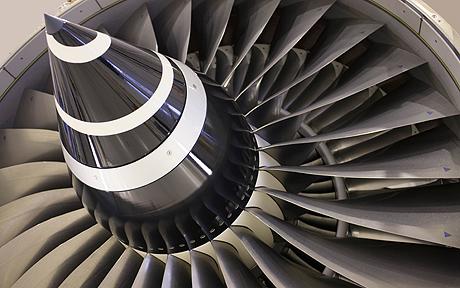“Scientists, former pilots and aviation pressure groups have accused the industry of knowing about the problem for decades and doing little to tackle it. But reports linking exposure to contaminated air with long-term harm to health have led to an increase in passengers and crew seeking redress, according to lawyers in the United States.”
Samples taken secretly from the planes of popular airlines have raised fresh concerns over passengers inhaling contaminated air.

Hundreds of incidents of contaminated air have been reported by British pilots Photo: GETTY
Fresh concerns about whether passengers could be inhaling contaminated air on aircraft have resurfaced, after undercover investigators claimed to have found high levels of a dangerous toxin on board several planes.
As part of an investigation by a German television network, ARD, and Schweizer Fernsehen (Swiss television), 31 swab samples were taken secretly last month from the aircraft cabins of popular airlines.
These were analysed in laboratories at the University of British Columbia, under the supervision of Prof Christian van Netten, a leading toxicologist.
Twenty-eight were found to contain high levels of tricresyl phosphate (TCP), an organophosphate contained in modern jet oil as an antiwear additive, which can lead to drowsiness, headaches, respiratory problems or neurological illnesses.
Scientists refer to the condition as Aerotoxic Syndrome. Dr Mackenzie Ross, a clinical neuropsychologist at University College London, says the illness may be affecting up to 200,000 passengers each year.
A Telegraph Travel investigation last February revealed that hundreds of incidents of contaminated air had been reported by British pilots.
Scientists and pressure groups claim that the toxins enter the cabin as a result of the “bleed air” system that is used on modern aircraft.
Air is drawn out of the compression section of the engine and cooled. It then enters the cabin, where it mixes with recirculated air that has passed through filters designed to remove bacteria and viruses.
However, these “recirculated air” filters do not remove fumes or vapours from the engine. So if engine oil or hydraulic fuel leaks, toxic chemicals can contaminate the air supply.
The Boeing Dreamliner 787, due to be launched next year, will be the first passenger jet since the mid-1950s to use air supplied from another source. It has previously been deemed to be too expensive to do this.
Scientists, former pilots and aviation pressure groups have accused the industry of knowing about the problem for decades and doing little to tackle it. But reports linking exposure to contaminated air with long-term harm to health have led to an increase in passengers and crew seeking redress, according to lawyers in the United States.
Captain Tristan Loraine, a former British Airways pilot of 19 years’ experience, has conducted more than seven years of research into the issue. He claims that it was repeated exposure to contaminated air that rendered him unfit to fly.
His findings, which have been made into a documentary film, prompted a BBC investigation into cabin air last year. He is co-chairman of the Global Cabin Air Quality Executive (GCAQE), which represents 500,000 aviation workers on this issue.
The GCAQE recently criticised an ongoing government inquiry into contaminated air, claiming that although the attention is welcome, the research the inquiry is based on is flawed. Its criticisms centre on “inadequate” testing methods, which it claims will fail to detect TCP.
- See www.aerotoxic.org for more details.
By Charles Starmer-Smith
Last Updated: 11:18AM GMT 13 Feb 2009
Source: The Telegraph